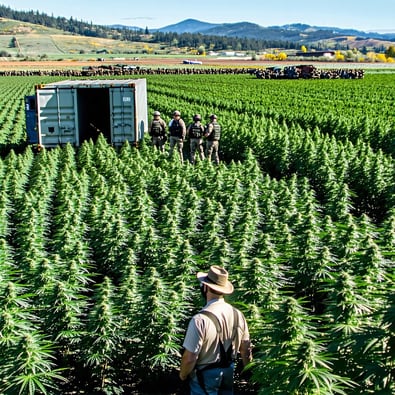The Cannabis Lab Testing Crisis: Oregon’s Inflated THC Scores & Growing Regulatory Challenges
Despite many U.S. states legalizing cannabis for medicinal or recreational use, the absence of federal legalization means oversight is left to the states. That includes testing for THC potency and contaminants—tasks now more critical than ever. A recent OPB report highlights a troubling trend emerging in Oregon: independent labs reporting inflated THC values and even approving products with safety issues
What Undark and OPB Reveal
Undark science magazine uncovered a pattern: in Oregon and other states, certain private laboratories appear to inflate THC potency figures—sometimes by large margins—to please clients and boost business. They also flagged testing failures for contaminants like mold and pesticides. The OPB article quotes senior Undark contributor Teresa Carr, pointing to the risks these practices pose for public safety and industry credibility
Why Is This Happening?
In many states, cannabis businesses engage in “lab shopping”—sending samples to multiple testing facilities and choosing reports that return the highest THC numbers. Industry insiders report that labs that deliver those results tend to grow rapidly in market share, while more accurate labs lose business Yasha Kahn, a data scientist at MCR Labs, analyzed open‑record data from several states, estimating that up to 30% of labs are reporting false results—yet they test a majority of products
Broader Context: A Patchwork of Standards and Weak Enforcement
With no federal cannabis guidelines, each state has developed its own testing protocols. These vary widely in lab accreditation rules, what contaminants must be tested, allowed THC calculation methods, and even sample collection protocols .That state-by-state inconsistency complicates enforcement and enables labs to “game” the system without immediate consequence .Some states have taken punitive measures. For instance, Nevada fined labs for unsound testing and suspended licenses; Washington and California revoked or shut down labs following fraud allegations .But overall enforcement remains sparse. In many jurisdictions—including Oregon—regulators are still developing mechanisms like randomized off‑the‑shelf testing and proficiency checks to verify private lab results
What’s Being Done—and Where It Needs to Go
Oregon is now considering new oversight measures, including data analysis to flag anomalies, peer‑review testing among labs, and possible random spot checks of products sold in retail dispensaries. These steps mirror reforms being piloted in other states to reduce lab shopping and increase confidence in testing labs.
Long-term, many experts call for a unified national framework—standardized testing methods, agreed contaminant thresholds, shared data, and federal guidelines—to ensure consistency, safety, and accountability
Why Consumers Should Care
For consumers, accurate THC levels matter not just for dosage and psychoactive effects, but also for avoiding potential exposure to harmful mold, pesticides, or mislabeled cannabinoids. Inflated potency can lead to overconsumption or misinformed purchasing decisions.
Cannabis testing labs have become a critical gatekeeper in the legal market—and in states like Oregon, some of those gates are proving too porous. As state regulators step up and call for reform, the goal should be clear: honest, science‑based testing that protects both consumers and the industry's reputation.





